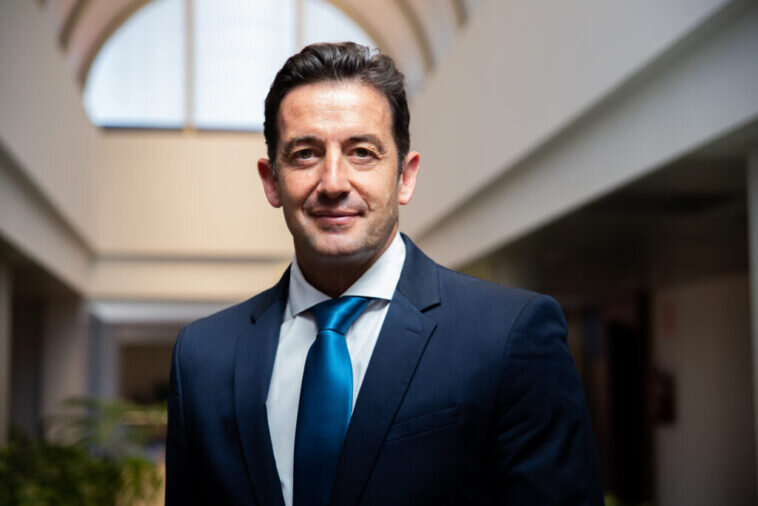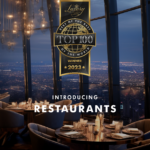1984. A year that inevitably evokes George Orwell’s work, which some read in the mid-20th century as fiction and others interpreted as a prophecy of the future. A future that, in 2023, is becoming a reality. But there is more to this symbolic year and fulfilled predictions: in 1984, William P. Andrew published ‘Hospitality education and the technological evolution’, where he discussed the technological advances that would land in the hotel industry and how employees would have to work alongside robots and other computer systems.
It’s a fact: the hospitality industry is rapidly advancing to adapt to a world headed towards digitalisation. According to the latest European Accommodation Barometer 2023 from Booking, 8% of European hotels are already using cutting-edge Artificial Intelligence (AI), and an additional 18% plan to implement it in the coming months. However, the value of employees remains unquestionable, and people will continue to take centre stage. Yes, all hotels, from large chains to small local establishments, are integrating smart and automated solutions into their strategies, but always with a goal in mind: optimising processes that were previously manual to increase the productivity and efficiency of their staff and, ultimately, achieve the highest level of customer satisfaction.
If we analyse it from a hotelier’s perspective, we quickly realise that the advantages are countless, and the initial investment pays off in the short term. To start with, costs can be reduced, both in terms of human resources and energy consumption, by avoiding excessive use of water, energy and food, thus contributing to a more ecological and sustainable environment, key terms in the searches of 90% of consumers. For example, just by installing LEDs and smart thermostats, a 30% reduction in costs could be achieved, which could be allocated to training and updating professionals in technology.
But technology goes beyond energy efficiency. Some hotel automation systems allow for the interconnection, synchronisation and comprehensive management of each client’s data to optimise processes, streamline communication channels, and establish a more direct relationship with them. It enables us to understand their preferences and tastes better. The use of tools like Property Management Systems (PMS), channel managers, chatbots, booking engines, and automated check-ins translates into the elimination of repetitive tasks, reduced queues during check-ins, a deeper understanding of each guest, and saved time for employees to provide highly personalised service.
To fully grasp this perfect match quickly, we must understand the profile of today’s tourist. In the last decade, hotels have undergone a process of digitalisation to meet the demands of a younger, digitally native guest who is highly influenced by what they see on social media (46% admit they are more likely to stay at a destination if they’ve seen it on the internet), even travels in the metaverse, and values experiences above all else. Current tourism demands focus on options that contribute to environmental improvement, gourmet plans and, above all, experiences that make them feel the journey has been designed uniquely for them, willing to pay up to 16% more for this added value.
It is clear that they are no longer guided solely by price and facilities when choosing a destination but consider other factors that were once complementary and are now decisive. We are talking about boutique hotels, offering a more intimate stay, or smart hotels like London’s Eccleston Square Hotel or, to provide another example, the NH Madrid Euro building, which include home-automated rooms, smartphone-operated keys, gourmet experiences, original and unique indoor excursions and activities.
At the heart of this transformation are employees, responsible for delivering these new and technological services to guests. They are the first beneficiaries because they can devote more time to customer satisfaction, dialogue and relationships. New industry professionals must undergo continuous training to stay updated, identify the strengths and weaknesses of their hotel, what can be improved and enhanced, and how these solutions can be applied to achieve it. Human interaction was, is, and will continue to be the differentiating element in the hotel industry, making the tourist experience truly extraordinary.
At Les Roches, we emphasise these soft skills that only human connection can provide, educating our students through experiential learning, technology and innovation, to prepare them for leadership in an ever-changing sector with growing competition. We collaborate with leading luxury hotel chains operating worldwide to ensure the best practical training for both young talents seeking to enter this industry and more senior profiles looking to specialise.
In this balance where innovation strives to gain more ground and the human factor tries to hold its place in processes that it has traditionally dominated, the hotel industry finds the perfect equilibrium. Contrary to what might be assumed, technology isn’t replacing personal attention, it is also enhancing it. Hospitality needs innovation, technology and passionate professionals to lead it.
Carlos Díez de la Lastra, CEO, Les Roches



